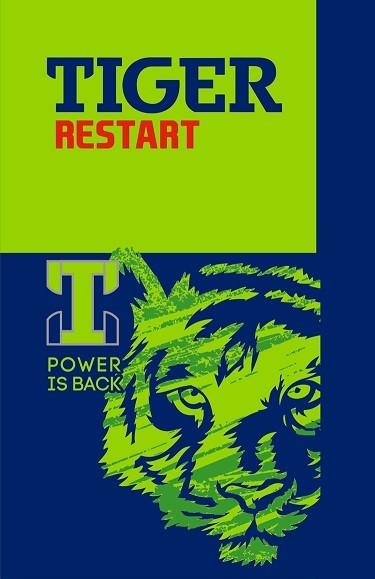 On 2 March 2021 the Polish Supreme Court finally decided that the famous Polish boxer Dariusz Michalczewski had won his case against FoodCare sp. z o.o. for the “Tiger” trademark for popular energy products (III CSKP 5/21).
On 2 March 2021 the Polish Supreme Court finally decided that the famous Polish boxer Dariusz Michalczewski had won his case against FoodCare sp. z o.o. for the “Tiger” trademark for popular energy products (III CSKP 5/21).
The internationally renowned Polish boxer Dariusz Michalczewski used the nickname “TIGER” during his sporting career. His nickname was widely known to the public and Dariusz Michalczewski was also widely recognized as a person by the “Tiger” nickname. Taking advantage of this interdependence and the great attraction which resulted of the commercialization of the Polish boxer’ image as a person and the very nickname “Tiger”, still during his sporting career, he started running a business under “Tiger” Dariusz Michalczewski. When Dariusz Michalczewski’s sporting fame was growing, his achievements and his nickname “Tiger” were widely known in Poland and abroad. He also registered some “Tiger” trademarks, some of which also included the image of a tiger head, for example the EUTM for the sign shown above.
In 2004, the company FoodCare and Dariusz Michalczewski concluded a licence agreement under which the sportsman authorised FoodCare to use the previously registered word and figurative marks and his image and the nickname “Tiger”, including using it for promotion and advertising purposes. In the course of time FoodCare started to register its own word and figurative marks whose distinctive element was the word “Tiger”.
FoodCare continued this practice and steadily eliminated the image of the sportsman from the packaging of energy drinks. These actions were intended to break the link between Dariusz Michalczewski and the products offered in the minds of customers, purchasers of energy drinks, despite the fact that the market success of the drinks was largely owing to the link with Dariusz Michalczewski, a famous and successful sportsman. As of November 2010, the promotional agreement was terminated. Nevertheless, FoodCare continued to produce and market energy drinks in packaging containing the word “Tiger”.
The dispute between the parties and former business partners involved several instances and a number of different prongs including trademark oppositions and infringement actions.
At the beginning of the infringement action, the first instance court held that Dariusz Michalczewski’s trademark protection rights and his nickname “Tiger” were not original and were used as a branding element by many producers. The second instance court held that Dariusz Michalczewski’s role in the process of winning the market and making the sign ‘Tiger’ recognisable for energy drinks had to be considered. Ultimately the courts of both instances upheld Dariusz Michalczewski’s claims, prohibiting FoodCare from using the “TIGER” trademark.
The Supreme Court largely upheld this. In its reasoning, the Supreme Court stressed that FoodCare had committed acts of unfair competition by violating good practice and the terms of the licence agreement. In addition, the Supreme Court ruled that Dariusz “Tiger” Michalczewski had independently obtained a right to a well-known mark in the energy drinks market. The right to a well-known mark cannot arise for an entity whose use is dependent and based on someone else’s license rights. FoodCare thus could not obtain any rights to the “TIGER” mark and, moreover, may not use other marks containing this element. Also FoodCare could not invoke the “Black Tiger” trademark it acquired in 2013 against Dariusz Michalczewski.
The judgment, which concludes a long-standing dispute, confirms that cumulative protection of intangible property rights in the intellectual property system, both under trade mark law, unfair competition and protection of personal rights, is justified and expedient. At the same time, this reasoning is part of an EU trend that the personal reputation of the trademark holder is important for the recognition of the trademark and building a brand. Famous people are generally better known to the public and, therefore, their names may have added distinctiveness with respect to certain goods. The problem of taking notoriety for granted is that fame changes over time, and it might be difficult for courts to recall whether a person was famous at some point in the past.
On the side, in an earlier Supreme Court judgment of 23 October 2020, Dariusz Michalczewski lost his fight to protect the nickname “Tiger” as an exclusive personal good.
_____________________________
To make sure you do not miss out on regular updates from the Kluwer Trademark Blog, please subscribe here.
Kluwer IP Law
The 2022 Future Ready Lawyer survey showed that 79% of lawyers think that the importance of legal technology will increase for next year. With Kluwer IP Law you can navigate the increasingly global practice of IP law with specialized, local and cross-border information and tools from every preferred location. Are you, as an IP professional, ready for the future?
Learn how Kluwer IP Law can support you.


